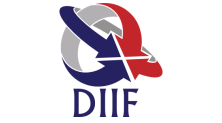The biological assessment in pediatric dentistry: A cross-sectional study
DOI:
https://doi.org/10.30574/gscbps.2020.11.1.0070Keywords:
Biological assessment, Prescription, Interpretation, ChildAbstract
The biological assessment is a complementary examination, which makes it possible to confirm or to cancel the presence of disorder suspected during the clinical examination. It has an important role and is a necessary step towards to better care. The aim of this study is to determine the biological reports prescribed and consulted by the pedodontic service and to evaluate the practitioners’ knowledge of biological reports as well as their training needs. The descriptive coss-sectional epidemiological survey was conducted on 35 practitioners. Our population is made up of all residents, specialists and teachers at the Pedodontics Department in Dental Consultation and Treatment Centre in Casablanca. The survey was conducted over a two-month period, from November 2018 to December 2018. The data collection was carried out through a questionnaire. 100% of practitioners prescribed a biological assessment for children, 62,9% of the practitioners surveyed have not received any continuing training in biological assessment, 100% of the practitioners need training to develop their knowledge about biological assessment. In the light of the results, it appears that knowledge of the principle of these tests is therefore essential to prescribe them in a relevant manner and to be able to interpret the results in collaboration with the attending physician. This allows better planning of potentially risky oral health care.
Metrics
References
Elsa R and Julie M. (2007). Ministry of Health, Youth and Sports, The profession of dental surgeon: current characteristics and developments, A qualitative study, MSJS, 6-7.
Charpiot E, Medical emergencies in the dental office: current data and survey of dental surgeons in Doubs, University of Lorraine Faculty of Odontology of Nancy.
Rerhrhaye M. (2010). Biological assessment in odontostomatology: interest and interpretation, Act Odonto-Stomato, 250, 117-135,
High health authority. (2011). Technology Assessment Report: Biology of Haemostasis Abnormalities, HAS, 6-7.
Belery C. (2011). How to prescribe additional preoperative exams in 2010. Med Buc Chir Buc, 17, 211-224.
Scully C. (2014). Scully’s medical problems in dentistry, Seventh edition, 19 (3), 179-88.
Downloads
Published
How to Cite
Issue
Section
License

This work is licensed under a Creative Commons Attribution-NonCommercial-ShareAlike 4.0 International License.
















